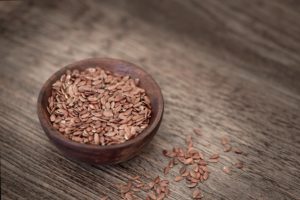What’s Veganuary?
Veganuary (vegan January) is a UK non-profit organization that promotes veganism by encouraging people to follow a vegan lifestyle for the month of January. It started in 2014 and has grown rapidly since then, with over 580,000 people from 209 countries taking part worldwide in 2021. Veganuary offer daily email support to participants, helping them to successfully complete a vegan month. Participants aim to only eat vegan food and also not to buy any non-vegan clothes, cosmetics or other items during the month.
Why is it worth trying Veganuary?
People choose to participate for a variety of reasons, but whatever it might be, it’s worth trying – for yourself and for the planet!
- Your individual carbon footprint will be much smaller:
Numerous studies show that on the individual level we can do certain things in order to reduce the amount of harmful substances in the air, living waters and lands: one of them is not to eat animal products – not mentioning the avoidance of driving and flying. In addition to the reducing of emissions, we can also significantly reduce land use as well: if people did not consume meat and dairy products at all, we could reduce the amount of land used for agricultural purposes by 75%!
- Your health can be significantly improved:
Among the participants of Veganuary, a healthier lifestyle has dominated in terms of motivation, and it turned out to be right: 1,300 of 2,300 respondents experienced positive health changes during only this 1 month. These positive changes includes more energy, better digestion, more beautiful skin, lowering cholesterol level, lowering joint pain, more restful and better sleep, and improved overall well-being. Of course, there are not only anecdotal examples showing that a well-formulated plant-based diet has a good impact on health, but well-founded scientific evidence as well.
- It is cheaper to live as a vegan/vegetarian:

Some critics of the plant-based diet often make the argument that vegan foods are much more expensive than traditional products. Nevertheless, the number of vegetarians is continuously growing worldwide, which is why the University of Oxford has also investigated the prices of related products. Researches have come to the surprising conclusion that a wholesome plant-based diet is the most affordable one in higher-income countries!
What if I don’t want to try Veganury but want to do something for the animals and the environment?
The flexitarian diet might be good for those who do not want to give up their usual and beloved pleasures forever, but want to eat in a more sustainable way. The impact is huge: if the entire population of the Earth followed this lifestyle (for example by introducing No-meat Monday), we could reduce greenhouse gas emissions from agriculture by 50%!
The flexitarian diet is a combination of the words flexible and vegetarian, so it is not based on adherence to strict rules. It does not exclude any ingredient at all, it only suggests what exactly we should consume more of and what we should consume less, so that we can do everything – or at least enough – to protect our environment simply and without compromise.
7 tips if you’re new
- Plan your days ahead: Plan your weekly menus in advance and do your shopping accordingly. Always have a vegan healthy snack at hand – it will help you through difficult times.
- Use technology: Nowadays there are numerous mobile apps, millions of online recipes and more and more vegan restaurants almost anywhere.
- Take gradual, small steps: Don’t give up on all your favorite meats at once. Start with small changes, so later the bigger steps will be easier.

- Look in the pantry: Many everyday foods (hazelnuts, lentils, beans, rice, fruits) are vegan, and you’ve probably eaten them before. The first step is to consciously increase their dose while gradually reducing the meat.
- Find your favorite source of protein: Meat is one of the most important sources of protein, so it can be very difficult to replace it with plant-based food. Try as many as you can (tofu, rice, peas, beans), and choose your favorite.
- Don’t forget about vitamin B-12: Unfortunately vegetables and fruits lack vitamin B-12, although it is very important for the body. Unless otherwise stated, you should provide your daily intake in a form of food supplements.
- Don’t worry! Milk and other dairy products are not the only source of calcium: Tofu, beans, broccoli, sweet potatoes, plant-based yogurt also do.

Useful links:
(recipes, weekly menu, sustainability)
- https://www.goodhousekeeping.com/food-recipes/healthy/g807/vegan-recipes/
- https://www.forksoverknives.com/recipes/vegan-menus-collections/27-healthy-vegan-recipes/
- https://www.pickuplimes.com/about?fbclid=IwAR3RXpuFqVVWGqsNh8KRjs1dksz5wqZbtdAAUE45znUga1adI5bMFlxjO0I
- https://www.pickuplimes.com/recipe/
- https://www.crispyfoodidea.com/2021/04/easy-vegan-snacks.html
- https://www.thecheaplazyvegan.com/category/vegan-snacks/
- https://www.vegansociety.com/news/media/statistics/environment-and-sustainability
- https://www.happycow.net/vegtopics/environment
- https://www.eatingwell.com/article/7902516/vegan-meal-plan-for-beginners/
- https://runningonrealfood.com/one-week-vegan-meal-plan/
Source: pixabay.com I vegansociety.com I prove.hu I vince.hu


Leave a Reply